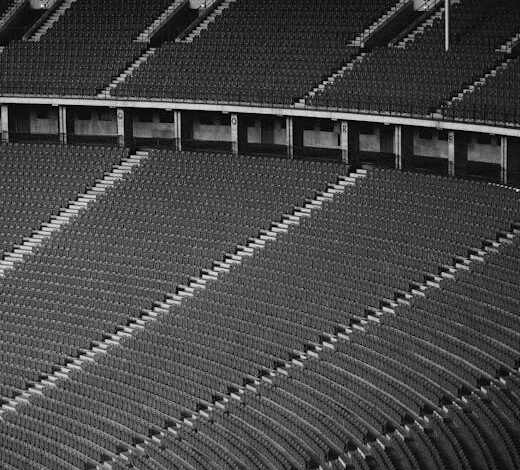The Unacceptable Reality: When Sport Becomes a Stage for Hate

The beautiful game. A phrase we hear so often, evoking images of dazzling skill, breathtaking goals, and the shared passion that unites millions across cultures. Yet, beneath this glossy surface, a darker current continues to mar the sport, one that rears its ugly head with disheartening regularity: racial abuse. For years, we’ve watched as players, often at the peak of their careers, have been subjected to vile discrimination from the very stands they entertain. The latest stark reminder of this enduring problem involves England international and Manchester United star, Marcus Rashford, and the proactive stance now being taken by Spanish authorities. It’s a moment that forces us to ask: are we finally seeing a turning point in the fight against racism in football?
The Unacceptable Reality: When Sport Becomes a Stage for Hate
It’s a scene far too familiar. A player, moments after scoring a crucial goal or missing a penalty, is met not with cheers or boos, but with the sickening sound of racist taunts or gestures. This isn’t just about football; it’s about basic human dignity. For Marcus Rashford, a figure who has become as well-known for his humanitarian work off the pitch as for his electrifying performances on it, the sting of such abuse must be profoundly disheartening.
The incident that has brought Spanish authorities into action highlights a persistent issue that plagues football globally, and particularly in some European leagues. We’ve seen countless examples, from Vinicius Jr. enduring racial slurs at multiple La Liga grounds to Kalidou Koulibaly facing monkey chants in Italy. These aren’t isolated incidents perpetrated by a few misguided individuals; they reflect a deeper, uncomfortable truth about elements within fan culture that believe the anonymity of a crowd grants them license to unleash hatred.
For a player, enduring racial abuse is more than just a momentary distraction. It’s a psychological assault. It undermines their sense of belonging, questions their worth, and turns the very place where they should feel empowered and celebrated into a hostile environment. Imagine the immense pressure of playing at an elite level, only to have your focus shattered by a targeted, prejudiced attack. It strips away the joy of the game, replacing it with a painful reminder of societal prejudice.
The Weight of History and the Call for Change
Football, at its best, is a microcosm of society’s ideals: teamwork, fair play, respect, and diversity. Players from every corner of the globe come together, united by a common goal. When racial abuse infiltrates this space, it not only contradicts these ideals but also mirrors the wider struggles against discrimination that continue to challenge communities worldwide. The calls for change aren’t new, but the urgency is growing, fueled by a generation of players and advocates who refuse to silently tolerate it anymore.
The pushback isn’t just from within the sport. Fans, media, and human rights organizations are increasingly demanding more robust action. This collective voice is what often pushes governing bodies and, crucially, legal authorities, to move beyond mere condemnation towards tangible, enforceable consequences. It’s no longer enough to issue a statement; there must be action.
Spanish Authorities Take a Stand: A Crucial Precedent?
This is where the news regarding Spanish authorities seeking a fine for racial abuse aimed at Marcus Rashford becomes so significant. It represents a concrete step, moving beyond the often-criticized symbolic gestures and into the realm of legal and financial accountability. While the specifics of the incident and the amount of the fine aren’t the sole focus, the act of prosecution itself sends a powerful message.
For too long, the punishment for such heinous acts has felt insufficient. Stadium bans, while important, often target individuals after the fact. Financial penalties, particularly those levied directly by judicial authorities, carry a different weight. They underscore that racial abuse isn’t just a breach of stadium rules; it’s a violation that can have legal repercussions, positioning it firmly as a criminal act, not merely a sporting transgression.
Beyond the Fine: A Broader Shift in Accountability
This move by Spanish authorities could indeed set a crucial precedent, not just for Spain, but for other leagues grappling with similar issues. It signals a shift from solely relying on club or league-level disciplinary actions to a more robust, state-backed legal framework. This is vital because it elevates the seriousness of the offense and demonstrates that societies, not just sporting bodies, are unwilling to tolerate such behavior.
However, the challenge remains immense. Identifying perpetrators in a crowded stadium is difficult, even with advanced CCTV systems. Witness statements are crucial, and encouraging fans to report abuse without fear of reprisal is a continuous effort. Furthermore, consistency is key. For this to truly be a deterrent, every incident must be investigated rigorously, and perpetrators must face the consequences, regardless of their club affiliation or the profile of the victim.
It’s also a powerful call for collective responsibility. Clubs have a duty to educate their fan base, implement effective security measures, and act swiftly when incidents occur. Leagues must enforce strict penalties for clubs whose fans engage in racist behavior. And perhaps most importantly, fellow fans must stand up and call out those around them who resort to prejudice. Silence, in these moments, is complicity.
What This Means for Football’s Future: Eradicating Racism From the Stands
The fight against racial abuse in football is a marathon, not a sprint. While the action taken by Spanish authorities against those who targeted Marcus Rashford is a welcome and necessary step, it is just one battle in a much larger war. It contributes to a growing international understanding that racism has no place in sport, and that those who perpetrate it will face tangible consequences.
This incident, and the response to it, reinforces the idea that true progress requires a multi-pronged approach: legal enforcement, educational initiatives, unwavering support for affected players, and a cultural shift within fan bases themselves. It demands that we continue to amplify the voices of players who speak out, like Rashford, Vinicius Jr., and many others who have courageously shared their experiences. Their bravery in the face of hatred is a powerful catalyst for change.
Ultimately, the goal is not just to fine or ban individuals, but to eradicate the mindset that fuels such abuse. It’s about ensuring that the “beautiful game” truly lives up to its name, becoming a truly inclusive and respectful environment for everyone involved, from the players on the pitch to the fans in the stands. The move by Spanish authorities offers a glimmer of hope that this future, though still distant, is becoming a little bit closer.
The actions of Spanish authorities seeking a fine for racial abuse aimed at Marcus Rashford is more than just a legal procedure; it’s a statement. It’s a clear declaration that the patience for hatred in football is wearing thin, and that real, tangible consequences are increasingly on the horizon. This isn’t just about protecting players; it’s about upholding the integrity of the sport and the fundamental values of respect and equality. The road ahead is long, but with every step like this, we move closer to a game where talent, passion, and sportsmanship are the only things that truly matter.





